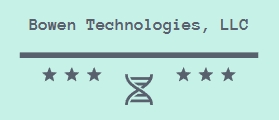Understanding Your Needs: The First Step in Buying Ball Mill Manufacturers
When considering the purchase of a ball mill, understanding your specific needs is crucial. Ball mills are vital equipment used for grinding materials in various industries, including mining, construction, pharmaceuticals, and chemical manufacturing. Different applications require different features and specifications, making it essential to evaluate your operational needs thoroughly.
First, determine what materials you will be grinding. Different materials exhibit different hardness and abrasiveness characteristics, which affect the choice of the ball mill. If you are working with hard materials, like ore or minerals, a mill with a higher power and a robust design will be necessary. On the other hand, softer materials might require lower power and a different type of grinding media.
Next, consider the production capacity you aim to achieve. Ball mills are available in various sizes, and their capacity can range from a few tons to several hundred tons per hour. Calculating the required output will help you identify the appropriate size and model for your operations.
| Parameter | Description | Example Value |
|——————-|———————————-|——————————–|
| Material Type | Types of materials to be ground | Ore, minerals, chemicals |
| Hardness Level | Hardness index of materials | Mohs scale value |
| Required Capacity | Output capacity in tons/hour | 5 tons/hour, 20 tons/hour |
Evaluating Manufacturer Reputation and Quality Control
After understanding your requirements, the next step is to evaluate potential ball mill manufacturers. The manufacturers reputation can significantly affect the quality of the equipment, so conducting thorough research is essential. Look for manufacturers with a solid history in the industry, positive customer feedback, and case studies showcasing their successful projects.
Additionally, consider the certifications and quality assurance standards that the manufacturer adheres to. ISO certification is an essential factor, indicating that the manufacturer follows international standards for quality management. Quality control processes ensure that every piece of equipment meets specific performance and safety standards, which is crucial for minimizing downtime and enhancing productivity.
Also, inquire about the manufacturer’s after-sales support and service. A reliable manufacturer should provide comprehensive support, including installation, maintenance, and spare parts availability. This aspect can significantly affect the long-term efficiency and functionality of your ball mill.
Technical Specifications and Customization Options
Understanding the technical specifications of ball mills is vital to ensure they meet your operational needs. Here are some key specifications to consider:
| Specification | Description |
|———————|——————————————-|
| Size | Dimensions of the mill (length x diameter) |
| Power Rating | Required horsepower or kW for operation |
| Grinding Media | Type and size of balls used |
| Drive Type | Type of drive (gear or gearless) |
| Speed | RPM (Revolutions per minute) |
| Material of Construction | Materials used for mill construction |
Moreover, customization options are crucial for tailoring the ball mill to your specific application. Different industries may have unique regulations, safety protocols, or operational expectations that can necessitate modifications. Some manufacturers offer custom liners,
.jpg)
grinding media, and even innovative control systems to optimize performance.
Budget Considerations and Financing Options
Pricing is always a critical aspect when purchasing industrial equipment like ball mills. The cost can vary based on specifications, capacity, and the manufacturers reputation. It is essential to set a reasonable budget that accounts not only for the initial purchase but also for installation, maintenance, and operational costs.
When budgeting, consider the total cost of ownership (TCO), which includes energy consumption, spare parts, and maintenance expenses over the equipment’s lifespan. Investing in energy-efficient models may cost more upfront but can lead to significant savings in operational costs over time.
Many manufacturers provide financing options that could ease the purchasing process. This
.jpg)
financing can take the form of lease agreements or installment payments, allowing businesses to spread their costs over time while maintaining cash flow. Be sure to explore these options and evaluate which method aligns best with your financial strategy.
Conclusion: Making an Informed Decision
Purchasing a ball mill is a significant investment that can impact your operational efficiency, production capacity, and overall profitability. By thoroughly assessing your needs, researching potential manufacturers, understanding the technical specifications, and considering budget implications, you can make an informed decision that drives your business forward.
Engaging with technical experts from the manufacturers can further ensure that you receive the best advice tailored to your specific requirements. Remember, the right ball mill will not only meet your current needs but also be adaptable to future changes in technology or market demands.
In summary, take your time with the buying process and prioritize thorough research, as this will ultimately lead to a successful procurement experience and enhanced operational performance.
moinho de bolas de laboratório moinho de laboratório moinho de bolas de laboratório
